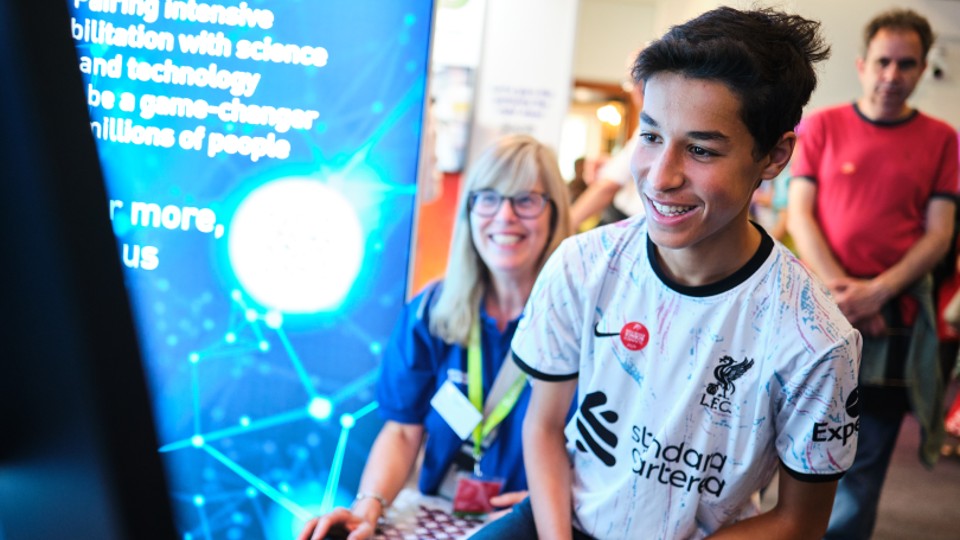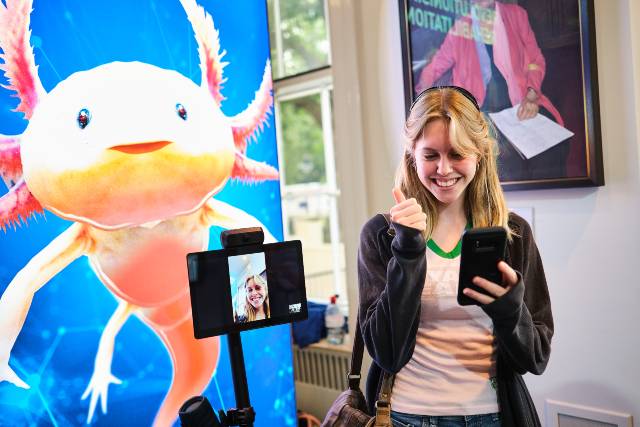The University was behind one of just nine interactive exhibits selected for the prestigious Summer Science Exhibition – an extravaganza showcasing the UK’s most exciting research, lectures, and late-night events that brought together more than 300 scientists over six inspiring days.
Revolutionising Rehabilitation showcased the pioneering work of scientists and clinicians from Loughborough University, The University of Nottingham and the Nottingham University Hospitals NHS Trust, working together at the National Rehabilitation Centre (NRC), a major new NHS rehabilitation facility set to be built on the Stanford Hall Rehabilitation Estate near Loughborough.
The exhibit featured the innovative science that underpins the NRC’s vision for personalised rehabilitation, including:
- Using sensors to see how the brain controls muscles
- Bioengineering muscles in the lab to rebuild damaged tissue
- Individually tailored prostheses and implants
- Super-smart textiles for real-time remote health monitoring
- Socially and physically assistive robots
Visitors were able to enjoy a range of fun, interactive opportunities including computer games, smart robots and bionic bandages, bringing them closer to the science being pioneered through the NRC.
Professor Dan Parsons, Pro Vice-Chancellor, Research and Innovation at Loughborough, said: “We are thrilled and immensely proud to have been one of the few chosen to showcase our pioneering research and innovation on rehabilitation at the prestigious Royal Society Summer Science exhibition.
"We firmly believe in the power of sharing our knowledge and engaging with a range of stakeholders to build awareness and understanding. It has been fantastic to see the remarkable achievements of our researchers brought to the forefront, sparking inspiration and fostering engagement among the general public.”
More information about Loughborough’s work to transform rehabilitation – from decoding how the brain talks to muscles to help regain mobility to lab-grown tissues for the development of personalised therapies – can be found here.

